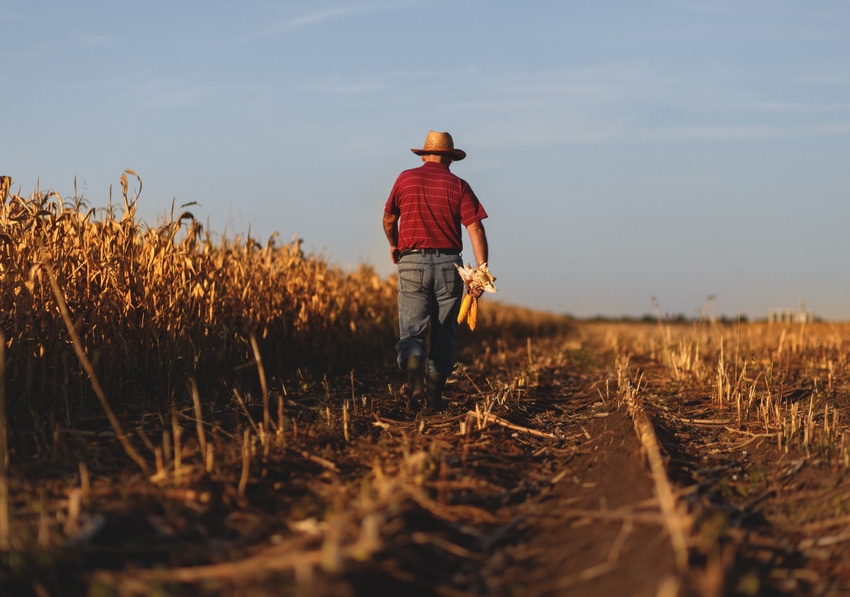February 13, 2019

Ask a product formulator who grew the raw materials in their ingredients and you’ll likely get a grunt or a shrug. Many formulators are sourcing ingredients from distributors who bought from processors who bought from brokers who bought from aggregators who bought from farmers somewhere. The black box of transactions that sits between natural brands and farming communities remains mostly impenetrable. At best we can choose attributes like organic, regenerative, fair trade, fair labor, humane, responsible or non-GMO. But we can’t (or won’t) ask if choosing one ingredient over another makes the world better.
Much of the supply chain for the natural products industry still damages soil, underpays families, and weakens communities. The American heartland has been deeply insecure throughout its history. Practices in other countries have wrought desperation among smallholders and laborers. The most abundant, nutritious and clean food is often grown by exploited, destitute and hopeless people.
We could say that 2018 was the year of the soil biome. The science of soil showed us how plants and the underground web of life depend on each other. Leaves combine water, carbon dioxide and sunlight to create sugars, which are stored in roots. Fed by these sugars, the fungal network surrounding the roots breaks down minerals, deters pathogens and holds water needed by the plant. Through chemical signaling, the two communities manage resources symbiotically for survival, growth and defense.
Perhaps 2019 should be the year of the rural economic biome. Agricultural communities create wealth from soil, sun, water and seed. They increase the value of raw materials by cleaning, processing and preserving them. Excess is aggregated for transport to larger markets. Wealth is captured and accumulated by families for food, education, housing and medical care. Wealth is deployed by communities for water, energy, education, roads and sanitation.
Buying into the biome
Around the world, the rural biome of agricultural communities provides the energy that powers the natural products industry. What nourishment are we providing them in return?
Degraded soils are inactive. Worms, fungus and microbes are few. Roots can’t penetrate. Water and dirt run off with the rain. Degraded towns are depopulated. Mechanized monoculture takes workers out of the fields, out of the communities. Chemical management requires none of the wisdom that kept those fields fertile over centuries. Industrial markets reject small lots and specialty crops. Without work, families move away. Close the school. Close the grocery. Close the theater, the town hall, the post office, the co-op, the diner, the clinic, the hardware store. When nothing is left, close the whole town.
Some will say good riddance to rural America. Agriculture should consolidate and standardize to capture efficiencies and financial returns. With six multinationals dominating commodity production, some say the game is already over. Some say that politics and rural affairs are out of our scope. We are about health and wellness, clean labels, and personalized nutrition. But the fundamental difference between conventional and natural is not what’s inside the box or bottle. It’s whether the growers of those ingredients are better off from our commerce and connection with them. If we have built an industry by honoring dirt, but not families and communities, then we have built an industry that will not grow except by further assimilation into mainstream markets.
Look to leaders
The natural products industry thinks, with all best intentions, that it is consciously doing good out there. We have many champions of wealth building, like Organic India, Teatulia in Bangladesh and Singing Rooster coffee in Haiti. In the U.S., look to Breadtopia and Shakti Chai in Iowa. These brands understand the complexity of restoring ecology, personal agency and community services. They have intentionally created products that provide nourishment, wealth and opportunity to the rural economic biome that, in turn, serves them.
Unfortunately, we have many more companies that choose the fastest, cheapest, and easiest alternative that still looks good on the label. The weakness of clean labels is that they are easy to replicate. Natural brands are knocked off by substandard look-alikes the moment they get retail traction. The brand that champions whole-community vitality will build an identity that can’t easily be taken away. Sell the producer, not the product. Farm family stories compel consumers. Shoppers want a simple way to help heal an ailing world. When they can afford to, they will choose a more expensive item if they trust the extra costs were righteously spent.
The B Corp mantra of “People, planet and profit” is a good place to start, but just a start; it includes poverty alleviation under its community and supply-chain measures. But a company can skip that piece and still score well.
Whether in Iowa or Kerala, we need rural communities and towns that accumulate at least modest wealth. We can’t bemoan the demise of rural areas while we ignore our ability to reverse it. Most of the world is fed by smallholder growers, who also produce most of the specialty ingredients our formulators depend on. If we extract goods at the lowest price through black-box supply chains, we contribute to problems that matter to our customers. The price of wheat is only 5 cents per pound at the farm gate in Colorado. The loaf of bread it’s baked into sells for $5. The natural brand’s margin report looks a little fatter. And so, farmers are giving up, again, because the cost to produce is higher than what the grain elevator is willing to pay them.
Let’s commit to shining light into the black box. Every ingredient purchase should uplift someone, somewhere, where it matters most.

About the Author(s)
You May Also Like





